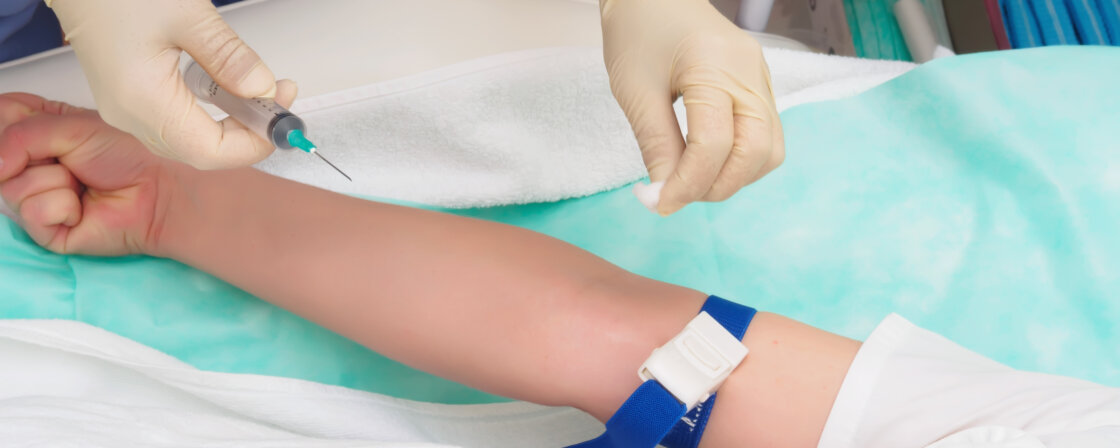What is medical documentation
A medical record is a collection of records that contain information about a patient’s health, treatment, care and history. This documentation is crucial for proper and effective healthcare because it allows doctors and other healthcare professionals to access important patient data. Its content and rules of use are defined by the Decree on medical documentation.
Are you solving a similar problem?
Need some advice?
Are you facing a legal problem that is beyond your capabilities and does not fall under any of our legal services? We will assess your case and draft a proposal for legal services to resolve it within 24 hours. If you then decide to entrust its solution in our hands, you have the drafting of the proposal free of charge.
I want to help
- When you order, you know what you will get and how much it will cost.
- We handle everything online or in person at one of our 6 offices.
- We handle 8 out of 10 requests within 2 working days.
- We have specialists for every field of law.
Decree on medical documentation
The Decree on medical documentation specifies in particular the content of medical documentation, i.e. information on the patient’s health, treatment, care and history. Specifically, it contains:
- Patient identification data: name, date of birth, birth and insurance numbers, addresses and contact information.
- Information about the health services provided: identification of the provider of these services (e.g., doctor or hospital), definition of the care or hospitalization provided, date of initiation and termination, description of the course and results of care, etc.
- Diagnosis information: Description of the patient’s health condition, proposed treatment and information on the health care provided, list of referrals to specialist doctors or clinics, description of the evolution and changes in the patient’s diagnosis, examination findings, treatment chosen (e.g. in the form of a list of prescribed medicines or medical devices, information on prescribed rehabilitation care, etc.).
- Information on the vaccination given: date given, name of vaccine and batch number.
- Written consents and refusals for health services
- Records of the use of restraints: These are those used particularly in psychiatry. There must be no lack of justification for the use of the agent, time of initiation and termination, and ongoing evaluation.
- Records of access to medical records: Include the date of access and the person who accessed the records. If applicable, a record that an extract was taken.
- Information on temporary incapacity for work: duration, justification, etc.
- Record of suspected child abuse: To be given for children whom a physician suspects abuse, abuse or neglect is occurring. Information about the reporting of this information and the action taken is also provided.
Tip for article
Tip: What does an accident at work mean? What are you entitled to, what is pain and suffering and how is it determined? Is the procedure different if you caused the injury in part by your own breach of duty? And why is your employer allowed to give you notice in connection with a work-related injury? Find out in our article.
In addition to the content of medical records, the Decree also contains rules for their retention, disposal and destruction; procedures for electronic transfer of medical records; and rules for medical records extracts, request forms, medical reports, discharge reports, medical reports, emergency service provider documentation, autopsy reports and autopsy cover sheets.
Rules for consulting medical records
Access to medical records is regulated by the Health Services Act. In particular, it regulates who may consult a patient’s medical records and under what circumstances. It also decides who can be informed about a patient’s health condition.
The medical records can be consulted, among other things:
- The patient himself, his legal representative or guardian;
- a person designated by the patient, his legal representative or guardian;
- a foster parent or other person caring for the patient;
- persons close to the deceased patient (parents, children, grandparents, grandchildren spouse, registered partner and siblings);
- persons qualified to practise a health profession and other professionals directly involved in the provision of health services (doctors, laboratory technicians, etc.);
- persons qualified to practise a health profession and State employees in connection with the review of medical opinion (e.g. for the award of a disability pension) and inspection;
- persons with competence to practise the health profession authorised by health insurance companies (e.g. for checking various claims for various health insurance contributions);
- health professionals to assess health status for the purposes of social security, in particular sickness or pension insurance, state social assistance, employment, social protection of children, social services and assistance in material distress.
As a patient, you have the right not to have your medical condition communicated to any of your close family members. However, you can also designate a person who is not defined as close to you to be informed (e.g. your partner).
Extract from health records
A health record extract is a certain summary of the most important information from the health record, which is intended to give a basic overview of the patient’s health.
What does it contain?
- Basic medical history information supplemented by the information necessary for the purpose for which the statement is issued,
- information on the patient’s most recent medical condition and a breakdown of the medicines, food for special medical purposes and medical devices used by the patient,
- a diagnostic summary,
- a brief assessment of the evolution of the patient’s state of health to date, including the response to previous treatment and the dynamics of the evolution of the results of laboratory and other ancillary tests,
- other relevant information, including information from aftercare.
When is it needed?
Most often you will be asked for an extract from your medical records by your employer or doctor for the purposes of an occupational health examination. This is because the statement is used to assess whether you are medically fit to do your chosen job. You should therefore only submit the extract from your medical records to the doctor who carries out the occupational health examination, not directly to your employer. The employer cannot ask you to do this because it is very sensitive information. However, you must provide it to the doctor.
You will also be asked to provide it if you are planning to go to a school where practical training is compulsory. In this case, you will also undergo a medical examination to determine whether you are medically fit to practice and therefore to study.
How to get it?
Your GP must provide you with an extract from your medical records. The time limit for this is not set by law, but generally the time limit is 10 days with a maximum of 30 days. If you have been working for your employer for a long time and are due for an occupational health check-up, your GP can issue you with a certificate of unchanged health instead of a statement of health (provided your health is the same as at the time of your last occupational health check-up).
If you do not have a GP, the procedure is to sign an affidavit stating this. The doctor carrying out the occupational health examination will then carry out a more extensive examination to fill in the missing information from the statement. The cost of this more detailed examination is paid for by the employer.
If you have a GP but for some reason have not obtained a statement, the occupational health doctor will most likely declare you unfit for work. Therefore, you will not be able to start your new job until you get a statement.
If you are a foreigner and your general practitioner is working in another country with a different official language, then you need to have the medical records translated into Czech and have the translation officially certified. The exception is Slovak, which is not translated.
Tip for article
Tip: Are you out of work and don’t know what to do next? When do you have to register with the Job Centre and how does it work? Will you get support at all, and how long can you receive it? All these questions can be answered in our article.
How much will you pay?
The medical assessment is paid for by the person requesting it, which in this case is your employer. And as the medical statement is part of the health assessment, they have to pay for it too. In practice, however, the way it usually works is that you pay the amount out of your own pocket and then your employer reimburses you.
The fees vary from doctor to doctor. However, it is always a few hundred crowns (in the range of about 100-600 crowns). In general, however, you will pay more than in the case of immediate issue or issue within 24 hours than in the standard period.
Tip for article
Tip: Does your employer not want to reimburse you for the cost of the medical records? Don’t let it get to you and contact us. We’ll be happy to help.
Summary
A medical record is a collection of records containing key information about a patient’s health, treatment and history. The rules for its content and preservation are defined in the Decree on Medical Records. The Health Services Act regulates who can consult the medical records. In practice, this may be health professionals, legal representatives or other designated persons.
A medical record extract is a summary of key information about a patient and is usually required for employment or school purposes. It is usually issued by a GP within 10 days, and fees for issuing it vary. It is required to be paid for by the employer as part of the occupational health check.




